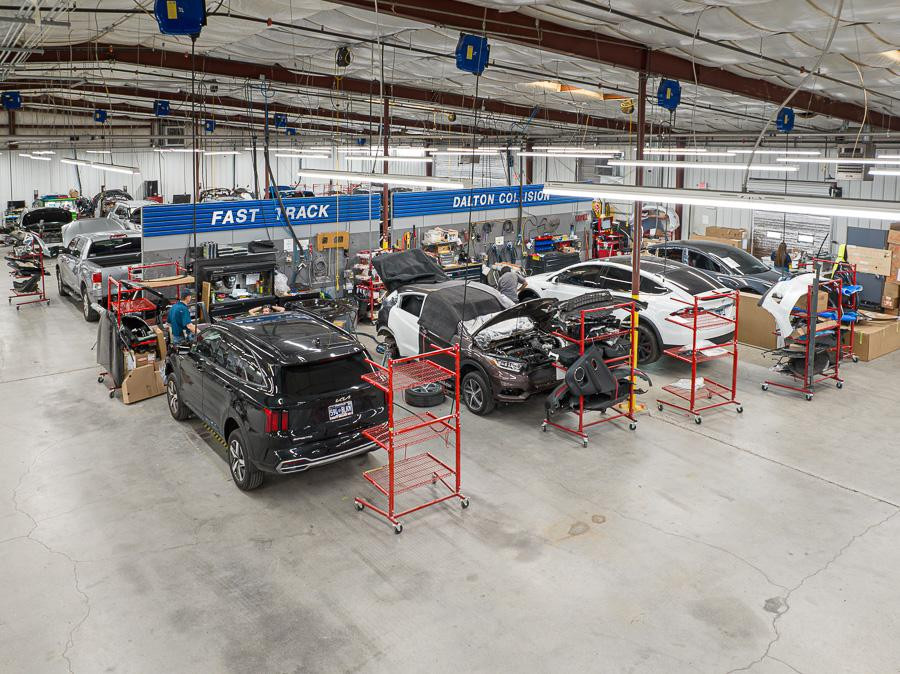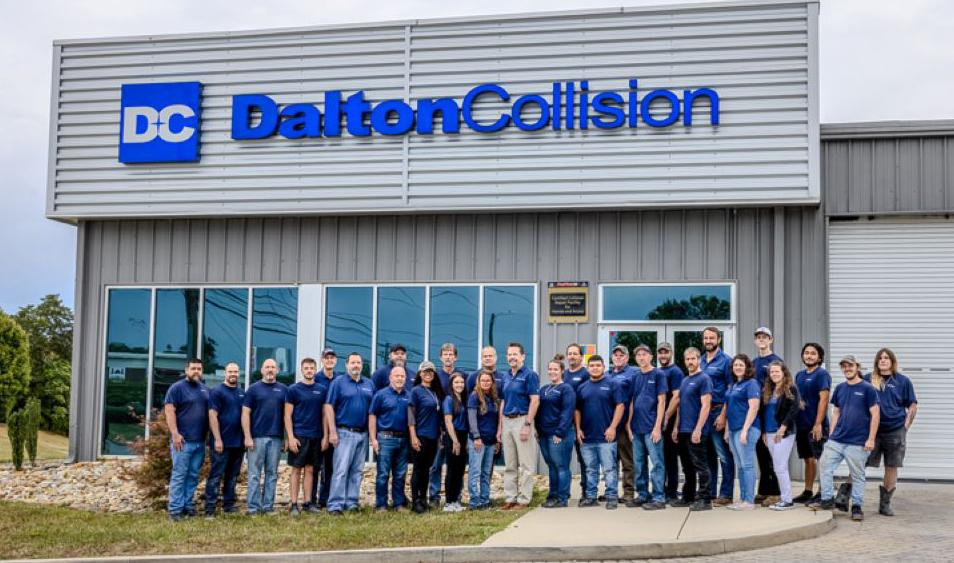Jerry Dalton’s time in body work began with a few wrecked cars and the idea to get them back on the road. It was 1991, and he was in his late 20s, doing paint work on Sea Ray boats when he started buying damaged Hondas and restoring them to drivable condition with new parts.
“We fixed and sold several Hondas, and I had some people helping me. We kind of developed a customer base. Those people started having claims,” he told Autobody News. “They’d come back. I was like a body shop.”
Dalton quickly moved from something “like” a body shop to an actual collision repair business, and he was doing insurance-funded work a couple of years later. He opened Dalton Collision's original location, which is still thriving today, in Blaine, TN.
His total operations have grown from an original 1,600 square feet in one location to 37,000, spread over two shops now, with an anticipated extra 6,000 square feet coming soon.
Growth Decisions
Dalton started seeing a change in body repair in the early 1990s as car manufacturers added airbags and safety became a central focus.
 Cars await body work inside the Knoxville location.
Cars await body work inside the Knoxville location.
Direct repair relationships with insurance companies started to factor in to the work the shop was doing. Dalton was hesitant at first, but DRP work took hold, and the dealership referrals multiplied too.
Growth has moved, over the years, from organic to more intentional: In 2018, Dalton Collision in the Knoxville/Powell area opened, its corporate-headquarters appearance giving it a sleek appeal from the road. The decision was born from the evident success of the original location, backed by customer requests and market research on the new area.
“We got about as big as we possibly could with the market revenue we were really capturing,” Dalton said of the Blaine location, which sits about 30 minutes outside Knoxville, Tennessee’s third most populous city. “We kind of plateaued out there. I had a really good base with customers in the Knoxville region and surrounding counties. A lot of people, when they had car wrecks, they would drive to us, even though they'd be a long ways off.”
Customers kept telling Dalton they wished he’d open in Knoxville. He began thinking about how to grow, looking at existing shops and running numbers on new construction. Finally, the perfect location became available. It was an existing building -- 24,000 square feet -- and Dalton had the option of a 20-year lease with a first-right-of-refusal purchase option.
Through research, he’d found annual revenue for collision work for the area was ample, and there were fewer than 10 shops serving it. He took the plunge.
“It was a good market to be in, and we started it,” he said.
Dealing with the Pandemic
The customers and the manufacturer certifications multiplied, and then, a couple of years in, the pandemic hit. Like most businesses, Dalton Collision had to recalibrate as it faced the complications. There was an initial slowdown, but customers came back in relatively quickly due to the state’s comparatively quick approach to opening up again.
“We started feeling the hit in April [2020.] May was the worst month. June was really bad. But, fortunately for us, in July, the State of Tennessee kind of opened back up, and it was really good from July going forward,” Dalton recalled.
Cars were rolling in, but the shop, like anywhere else, couldn’t get parts, so business backed up. Nevertheless, Dalton Collision kept all its employees, subsidizing their pay with federal Employee Retention Credits.
The staff used the downtime to complete trainings.
“We did any kind of online training that we could do,” Dalton said. “We kept up our I-CAR training. We got manufacturer certifications. Some of the paint companies had some parts training, blueprinting.”
Next Steps
At this point, now that inventory levels have gotten closer to normal across the industry, both shops are running at full capacity, and the Knoxville location, which Dalton purchased in 2021, will expand by 6,000 square feet soon to include a calibration center. The shops’ numerous manufacturer certifications -- more than 17 OEM certifications now with some in process -- are gearing more and more toward the burgeoning electric vehicle market, Dalton said.
It’s a far cry from buying and selling smashed-up Hondas. Over the years, word of mouth and repeat customers have been the business’ biggest growth driver. Respectful interactions, working well with different insurance companies and getting cars back on the road as soon as possible have gone a long way in establishing return customers.
“We learned early on, you know, no matter whose car you're repairing, no matter who's paying the bill, be respectful, be nice, be polite,” Dalton said. “It seems like that goes a lot longer way than just ‘pay me.’”














Elizabeth Green